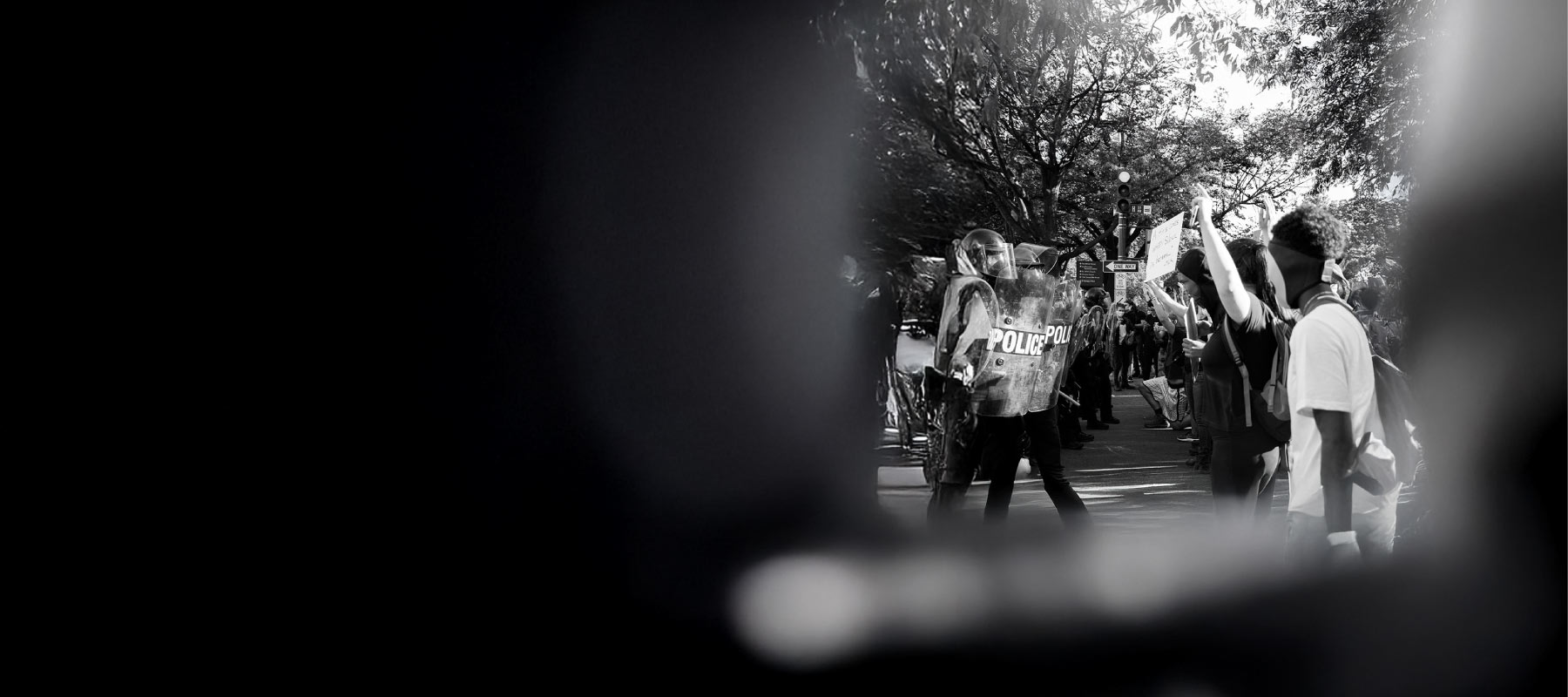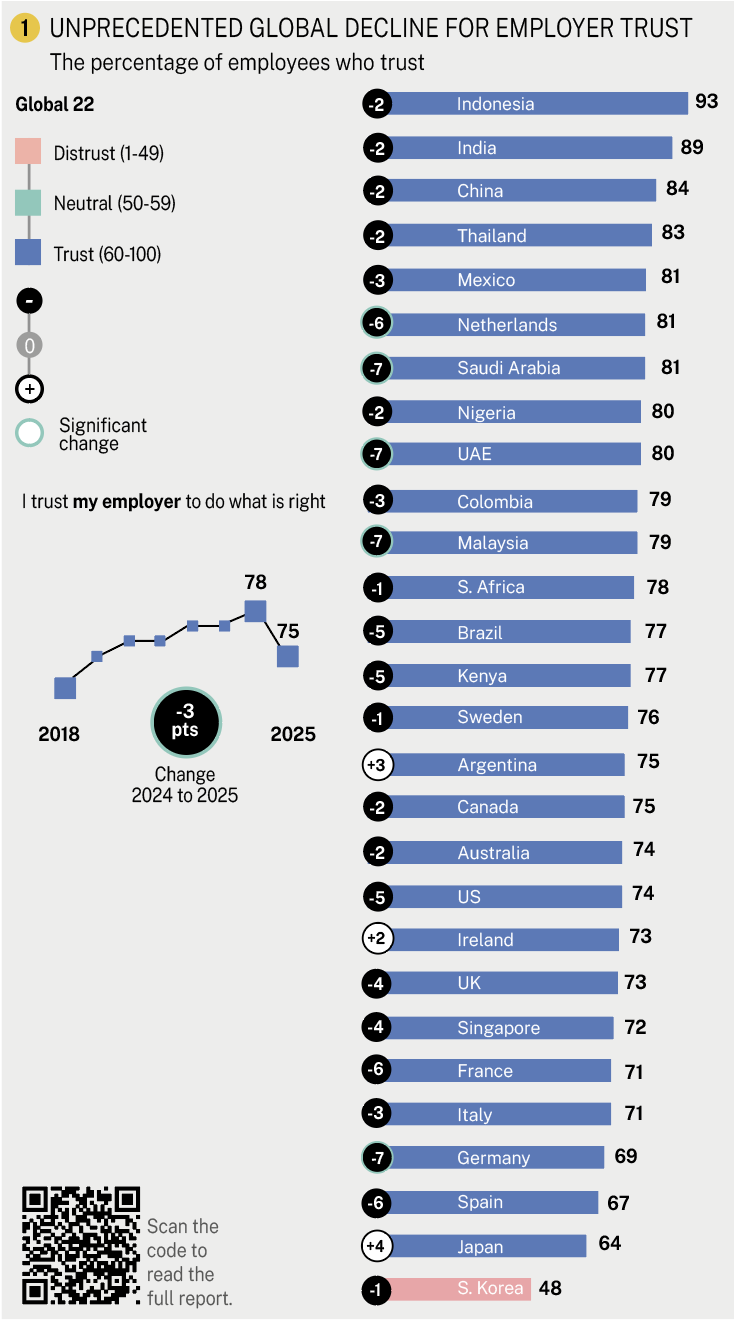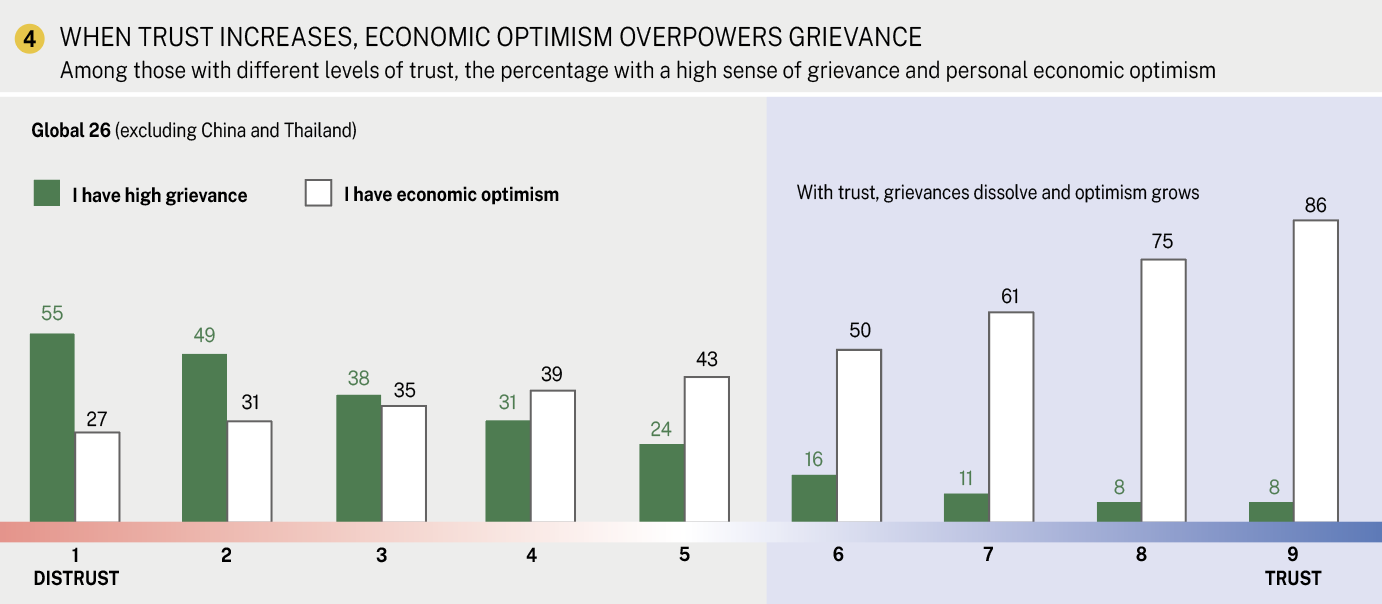Employees and the wider public expect businesses to do more: more on job skills and better working conditions, more on societal impact, and, in general, a lot more empathy. Through 25 years of the Trust Barometer, we have seen how trust has shifted from authorities to peers (2005), reinforced a mass class divide (2016), and taken center stage in the battle for truth (2018). Yet, in recent years, we’ve also seen business become the most trusted institution (2021).
To navigate this newest of new realities, organizations and their leaders must actively work to address grievances by building and sustaining trust. Here’s how:
1. Strengthen leadership credibility
Trust in CEOs and business is lower among those who feel a high sense of grievance. The report finds a 34-point gap in CEO trust between those who hold a low and high sense of grievance (See chart 2). Leadership trust is not just about competence – it’s about perceived fairness and ethics.
What businesses can do:
- Lead with empathy. Employees and consumers want leaders who listen and respond to their concerns. Open forums, direct engagement, and leadership accessibility build credibility.
- Show accountability. Acknowledging mistakes, taking corrective action, and setting measurable goals for improvement can reinforce trust in leadership.
- Act on employee feedback. Employees who feel unheard will more likely be skeptical of leadership. Regular feedback loops through surveys, town halls, or direct dialogue can help businesses course-correct in real time.
- Encourage ethical decision-making. Providing training on ethical leadership and reinforcing values-based decision-making helps create a culture of integrity.

Audio available

 Audio available
Audio available






